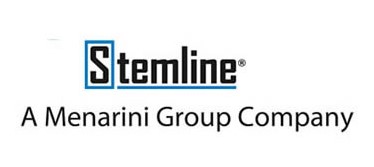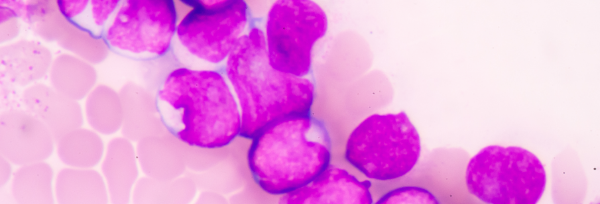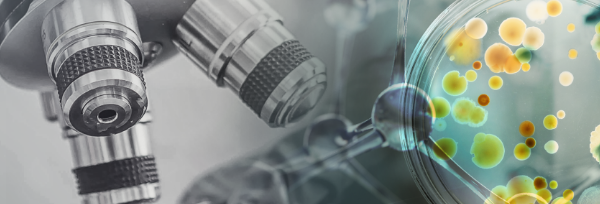European Commission Approves Menarini Group’s ORSERDU® (Elacestrant) for the Treatment of Patients with ER+, HER2- Locally Advanced or Metastatic Breast Cancer with an Activating ESR1 Mutation


- Each year in Europe more than 550,000 patients are diagnosed with breast cancer, of whom 70% have estrogen receptor (ER)-positive disease¹; more than 147,000 breast cancer patients in Europe die annually from the disease²
- ORSERDU is the first treatment specifically for patients with ER+, HER2- advanced or metastatic breast cancer tumors that harbor ESR1 mutations, representing the first innovation in endocrine therapy in nearly 20 years
- ESR1 mutations are present in up to 40% of ER+, HER2- advanced or metastatic breast cancers, and are a known driver of resistance to standard endocrine therapy, making these tumors more difficult to treat
FLORENCE (Italy) and NEW YORK, NY, September 20, 2023 – The Menarini Group (“Menarini”), a leading international pharmaceutical and diagnostics company, and Stemline Therapeutics Inc. (“Stemline”), a wholly-owned subsidiary of the Menarini Group, announced today that the European Commission has approved ORSERDU® (elacestrant) as a monotherapy for the treatment of postmenopausal women, and men, with estrogen receptor (ER)‑positive, HER2-negative, locally advanced or metastatic breast cancer (mBC) with an activating ESR1 mutation who have disease progression following at least one line of endocrine therapy including a CDK 4/6 inhibitor.
The European Commission’s approval follows the positive opinion of the Medicinal Products for Human Use (CHMP) of the European Medicines Agency (EMA), which was issued in July 2023. With this approval, ORSERDU is the first and only therapy specifically indicated for the treatment of ER+, HER2- tumors that harbor ESR1 mutations. ESR1 mutations are acquired mutations that develop as a result of exposure to endocrine therapy, and they are found in up to 40% of patients with ER+, HER2- mBC. ESR1 mutations are a known driver of resistance to standard endocrine therapy, and until now, the tumors that harbor these mutations have been more difficult to treat.
“We have long known that patients living with metastatic breast cancer need effective and tolerable options which treat their disease while enabling them to focus on the things that matter to them,” said Elcin Barker Ergun, CEO of the Menarini Group. “We are proud of delivering a new breast cancer treatment that offers efficacy in a once-daily pill and represents the first innovation in endocrine therapy in nearly two decades; we are also incredibly grateful for the support of the oncology researchers and all the patients who participated in the clinical studies that made today’s achievement possible.”
“With a significant number of ER+ HER2- patients ultimately developing ESR1 mutations at some point in their metastatic journey, it is important to test for ESR1 each time an mBC patient experiences disease progression, to understand what is fueling their breast cancer. Today’s approval gives us the first-ever treatment option that directly acts against the very mutations that make this form of breast cancer more difficult to treat, and provides hope to our patients and their families,” said Giuseppe Curigliano, MD, PhD, Professor of Medical Oncology at the University of Milano and the Head of the Division of Early Drug Development at the European Institute of Oncology, IRCCS, Italy.
The approval of ORSERDU is supported by data from the Phase 3 EMERALD trial, which demonstrated statistically significant progression-free survival (PFS) with elacestrant versus standard-of-care (SOC), defined as investigator’s choice of an approved endocrine monotherapy. The primary endpoints of the study were PFS in the overall patient population and in patients with ESR1 mutations. In the group of patients whose tumors had ESR1 mutations, elacestrant achieved a median PFS of 3.8 months vs 1.9 months on the SOC, and reduced the risk of progression or death by 45% (PFS HR=0.55, 95% CI: 0.39, 0.77) vs SOC.
A post hoc subgroup analysis of the EMERALD PFS results, which was presented at the San Antonio Breast Cancer Symposium (SABCS) 2022, demonstrated that the duration of prior CDK4/6i treatment was positively associated with longer PFS on elacestrant but not with SOC. For patients with ESR1 mutations who were treated with CDK4/6i for ≥12 months prior to randomization on EMERALD, elacestrant achieved a median PFS of 8.6 months versus 1.9 months on SOC, with a 59% reduction in the risk of progression or death (HR=0.41 95% CI: 0.26-0.63).³
Safety data were consistent with previously reported results. The most common (≥ 10%) adverse reactions with ORSERDU were nausea, triglycerides increased, cholesterol increased, vomiting, fatigue, dyspepsia, diarrhoea, calcium decreased, back pain, creatinine increased, arthralgia, sodium decreased, constipation, headache, hot flush, abdominal pain, anaemia, potassium decreased, and alanine aminotransferase increased. Important Safety Information for ORSERDU is provided below.
Stemline and its affiliates will commercialize the product within Europe.
About the EMERALD Phase 3 Study (NCT03778931)
The EMERALD Phase 3 trial is a randomized, open label, active-controlled study evaluating elacestrant as second- or third-line monotherapy in ER+, HER2- advanced/metastatic breast cancer patients. The study enrolled 478 patients who had received prior treatment with one or two lines of endocrine therapy, including a CDK4/6 inhibitor. Patients in the study were randomized to receive either elacestrant or the investigator's choice of an approved hormonal agent. The primary endpoints of the study were progression-free survival (PFS) in the overall patient population and in patients with estrogen receptor 1 gene (ESR1) mutations. In the group of patients whose tumors had ESR1 mutations, elacestrant achieved a median PFS of 3.8 months vs 1.9 months on the SOC, and reduced the risk of progression or death by 45% (PFS HR=0.55, 95% CI: 0.39, 0.77) vs SOC.
About ORSERDU® (elacestrant)
Indication: ORSERDU (elacestrant) monotherapy is indicated for the treatment of postmenopausal women, and men, with estrogen receptor (ER)-positive, HER2-negative, locally advanced or metastatic breast cancer with an activating ESR1 mutation who have disease progression following at least one line of endocrine therapy including a CDK 4/6 inhibitor.
Important Safety Information from the ORSERDU SmPC
Hepatic Impairment: Administration of ORSERDU should be undertaken with caution at a dose of 258 mg once daily in patients with moderate hepatic impairment (Child-Pugh B). In the absence of clinical data, ORSERDU is not recommended in patients with severe hepatic impairment (Child-Pugh C).
Concomitant use with CYP3A4 Inducers and/or inhibitors: Concomitant use of strong or moderate CYP3A4 inhibitors with ORSERDU should be avoided. Concomitant use of strong or moderate CYP3A4 inducers with ORSERDU should be avoided.
Thromboembolic events: Thromboembolic events are commonly observed in patients with advanced breast cancer and have been observed in clinical studies with ORSERDU. This should be taken into consideration when prescribing ORSERDU to patients at risk.
Adverse Reactions:
Serious adverse reactions reported in ≥ 1% of patients included nausea, dyspnoea, and thromboembolism (venous).
The most common (≥ 10%) adverse reactions with ORSERDU were nausea, triglycerides increased, cholesterol increased, vomiting, fatigue, dyspepsia, diarrhoea, calcium decreased, back pain, creatinine increased, arthralgia, sodium decreased, constipation, headache, hot flush, abdominal pain, anaemia, potassium decreased, and alanine aminotransferase increased.
The most common Grade ≥3 (≥2%) adverse reactions of elacestrant were nausea (2.7%), AST increased (2.7%), ALT increased (2.3%), anaemia (2%), back pain (2%), and bone pain (2%).
Nausea: Nausea was reported in 35% of patients. Grade 3-4 nausea events were reported in 2.5% of patients. Nausea occurred more frequently in the first cycle and from Cycle 2 onward, the incidence of nausea was generally lower in subsequent cycles (i.e., over time).
Elderly: Gastrointestinal disorders were reported more frequently in patients aged ≥ 75 years.
Fertility, pregnancy, and lactation:
ORSERDU should not be used during pregnancy or in women of childbearing potential not using contraception. Based on the mechanism of action of elacestrant and findings from reproductive toxicity studies in animals, ORSERDU can cause foetal harm when administered to pregnant women. Females of reproductive potential should be advised to use effective contraception during treatment with ORSERDU and for one week after the last dose.
It is recommended that lactating women should not breast-feed during treatment with ORSERDU and one week after the last dose of ORSERDU.
Based on findings from animal studies and its mechanism of action, ORSERDU may impair fertility in females and males of reproductive potential.
Effects on ability to drive and use machines: Fatigue, asthenia, and insomnia have been reported in some patients taking ORSERDU. Caution should be observed by patients who experience those adverse reactions when driving or operating machinery.
The safety and efficacy of ORSERDU in children from birth to 18 years of age has not been established.
To report SUSPECTED ADVERSE REACTIONS: EUPV@menarinistemline.com
To Report a Product Complaint: EUcustomerservice@menarinistemline.com
To Request Medical Information: EUmedinfo@menarinistemline.com
Elacestrant is also being investigated in several clinical trials in metastatic breast cancer disease, alone or in combination with other therapies: ELEVATE (NCT05563220); ELECTRA (NCT05386108); and ELCIN (NCT05596409). Elacestrant is also planned to be evaluated in early breast cancer disease.
The Menarini Group obtained global licensing rights for elacestrant in July 2020 from Radius Health, Inc. The Menarini Group is now fully responsible for global registration, commercialization, and further development activities for elacestrant.
About The Menarini Group
The Menarini Group is a leading international pharmaceutical and diagnostics company, with a turnover of over $4.4 billion and over 17,000 employees. Menarini is focused on therapeutic areas with high unmet needs with products for cardiology, oncology, pneumology, gastroenterology, infectious diseases, diabetology, inflammation, and analgesia. With 18 production sites and 9 Research and Development centers, Menarini’s products are available in 140 countries worldwide. For further information, please visit www.menarini.com.
About Stemline Therapeutics Inc.
Stemline Therapeutics, Inc. (“Stemline”) a wholly-owned subsidiary of the Menarini Group, is a commercial-stage biopharmaceutical company focused on the development and commercialization of novel oncology therapeutics. Stemline commercializes ORSERDU® (elacestrant) in the United States, an oral endocrine therapy indicated for the treatment of postmenopausal women or adult men with estrogen receptor (ER)-positive, human epidermal growth factor receptor 2 (HER2)-negative, ESR1-mutated advanced or metastatic breast cancer with disease progression following at least one line of endocrine therapy. Stemline also commercializes ELZONRIS® (tagraxofusp-erzs), a novel targeted treatment directed to CD123 for patients with blastic plasmacytoid dendritic cell neoplasm (BPDCN), an aggressive hematologic cancer, in the United States and Europe, which is the only approved treatment for BPDCN in the US and EU to date. Stemline also commercializes NEXPOVIO® in Europe, an XPO1 inhibitor for multiple myeloma. Stemline also has an extensive clinical pipeline of small molecules and biologics in various stages of development for a host of solid and hematologic cancers.
Media Contacts
| The Menarini Group | Stemline Therapeutics, Inc. |
¹ Decision Resource Group / Clarivate Breast Cancer Landscape / Epidemiology – June 14, 2023
² International Agency for Research on Cancer, World Health Organization – Globocan – 2020
³ Bardia et al. EMERALD phase 3 trial of elacestrant versus standard of care endocrine therapy in patients with ER+/HER2- metastatic breast cancer: Updated results by duration of prior CDK4/6i in metastatic setting. SABCS 2022. GS3-01























